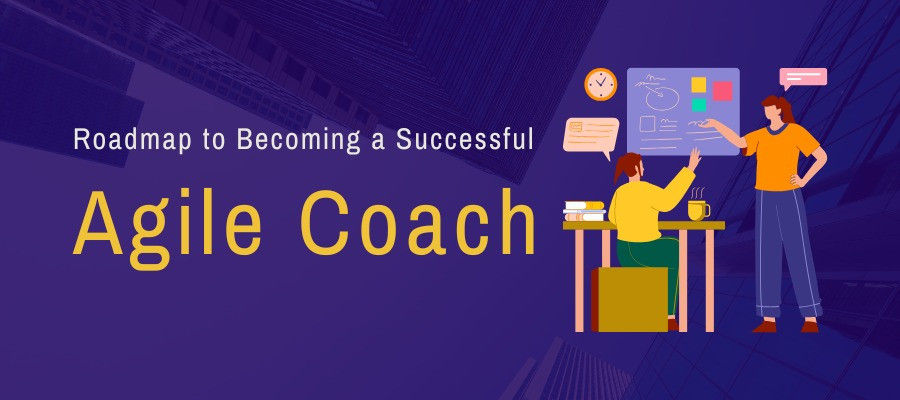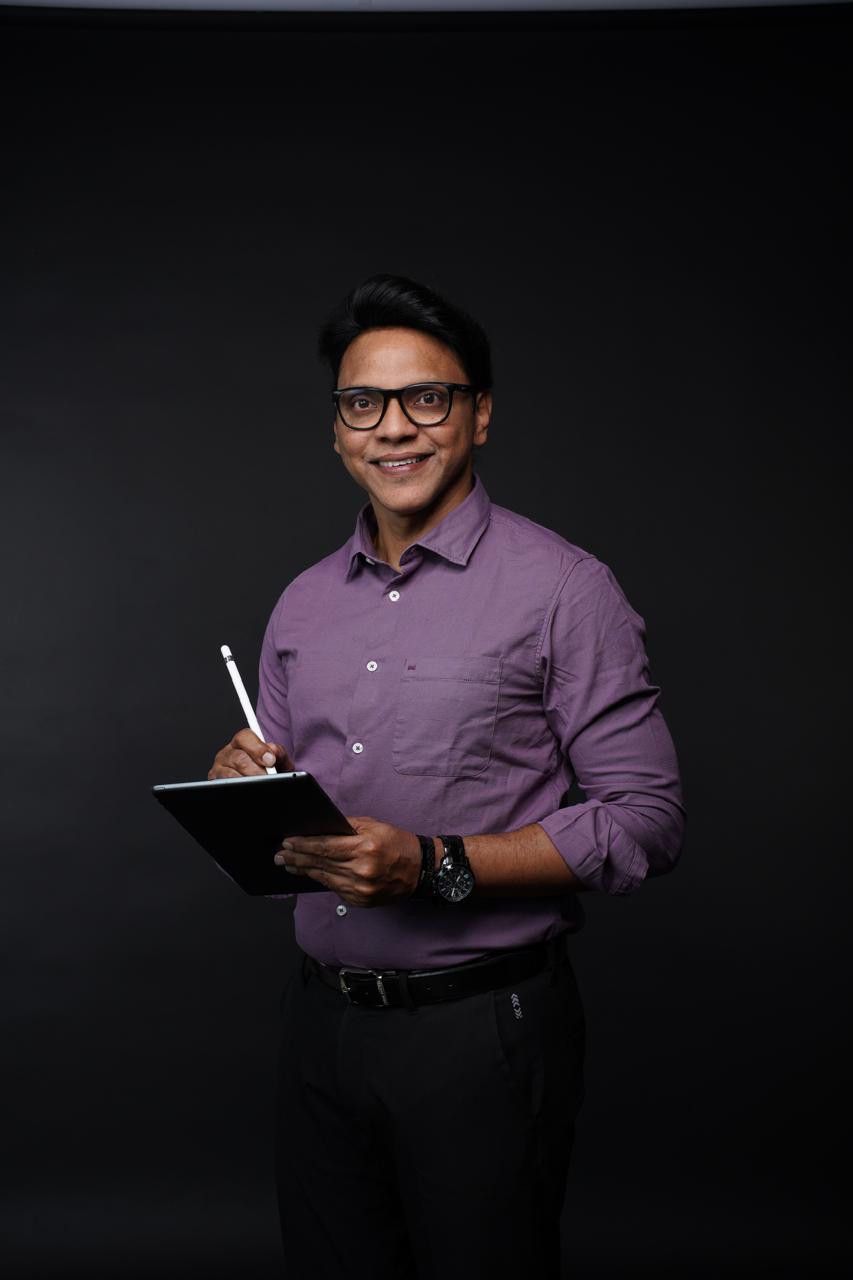Roadmap to Becoming a Successful Agile Coach

Becoming an Agile Coach is a decisive career shift. It demands clarity, purpose, and a deep Agile mindset. You will guide teams and leaders with trust and empathy. You will influence organizational change through practical experience. Agile Coaching goes beyond frameworks and tools. Many professionals start as Scrum Masters or Agile practitioners. They grow into coaching roles through learning and practice. The journey is challenging but deeply rewarding. Let’s walk through a detailed step-by-step roadmap built for today’s Agile professionals. This guide will show you how to become a successful Agile Coach.
Step 1: Understand What an Agile Coach Really Does
Before you leap, define the destination. An Agile Coach is not just a better Scrum Master. The Agile Coach works across multiple teams and levels of the organization. You move beyond team-level facilitation to shape organization-wide agility. You teach, mentor, coach, and consult.
You help people understand Agile and adopt it meaningfully and sustainably. You’re expected to coach leaders on building high-performing cultures. You run deep-dive sprint retrospectives. You train teams on various agile frameworks. But above all, you build trust and drive lasting change.
Coaching isn't just about Agile practices. This requires expertise in Scrum, SAFe, Kanban, LeSS, and more. It also demands deep emotional intelligence and organizational awareness. It's about changing how people think and collaborate.
Step 2: Assess Your Current Skills and Experience
Before diving into new certifications or frameworks, pause and reflect. Think about your current role. Are you leading teams? Do you facilitate Agile ceremonies? Have you worked across departments or only with a single team? Are you confident coaching a leadership team during a transformation?
This step is personal. It helps you identify your strengths—maybe you're already a great facilitator or understand team dynamics well. But it also shows you what’s missing. That self-awareness will shape your next moves and help you build your personalized Agile coaching journey.
Step 3: Identify and Fill Skill Gaps
Every Agile Coach needs a solid foundation in coaching techniques. But that is not enough. You need to understand what to improve and why. Start by learning coaching fundamentals. Learn how to ask powerful questions and listen actively. Study how different scaling frameworks work. Improve your facilitation. Learn change management so you can guide teams through resistance. You’ll also want to gain deeper skills in:
- Agile metrics and maturity models
- Emotional intelligence and team psychology
- Business agility and stakeholder coaching
This is where PremierAgile steps in. Their role-specific workshops and masterclasses are designed for professionals transitioning into coaching roles.
Step 4: Learn from the Right Resources
Books are potent companions in your journey. If you’re serious about becoming a coach, you must invest time in reading.
Start with "Coaching Agile Teams" by Lyssa Adkins—it's a classic. Then, explore titles like “Agile Coaching” by Rachel Davies or “The Coaching Habit” by Michael Bungay Stanier for broader coaching skills. Don’t overlook books like “Thinking in Systems” or “Turn the Ship Around!”—they’ll help you understand leadership, systems thinking, and adaptive change.
Blogs, podcasts, and coaching case studies can teach you a lot. PremierAgile publishes practical guides and real coaching stories that give you behind-the-scenes views into enterprise transformations.
Step 5: Get Certified Strategically
Certifications are valuable progress markers, especially if you're switching careers or want to validate your coaching capabilities. But don't chase them blindly. Choose certifications that align with your current stage and goals.
If you’re just starting:
- Certified Scrum Master (CSM) or Professional Scrum Master (PSM) is a great foundation.
If you're already a practitioner:
- Advance to A-CSM, ICP-ACC, or Certified Scrum Professional (CSP).
At an advanced stage:
- Explore ICAgile Certified Expert in Agile Coaching (ICE-AC), Scrum Alliance Certified Enterprise Coach (CEC), or SAFe Program Consultant (SPC).
PremierAgile helps professionals prepare and earn these certifications with mentorship and real coaching discussions. You can learn under professional Agile Coaches and gain experience from them directly!
Step 6: Apply and Experiment in Real Scenarios
Learning theory is one thing. Applying it is where you grow. Start experimenting with coaching in your current role. You can begin small—facilitate a team retrospective in a new format or guide your team through a values discovery session. Offer to mentor junior Scrum Masters or facilitate cross-team alignment workshops.
Look for patterns in resistance. Observe how leadership reacts to change. Reflect on what worked, what didn’t, and what you learned. The more you coach in real-world contexts, the better you get. That’s why PremierAgile emphasizes learning by doing group coaching exercises!
Step 7: Build Your Coaching Presence and Brand
Great coaches are visible not for self-promotion but because they share and uplift others. Start by writing about your learnings. Reflective blogs or LinkedIn posts can help you grow and help others. Share coaching stories, dilemmas, and small wins. You can also speak at internal town halls or external Agile meetups. This is how you build credibility and trust. The coaching community thrives on authenticity, so show up as yourself. PremierAgile encourages alumni to publish their case studies and speak at webinars or community circles to give their voices a platform.
Step 8: Join a Coaching Network or Mentorship Circle
You’ll grow faster with support. Join a peer group, find a mentor, or become part of a coaching guild.
Surround yourself with experienced coaches who can challenge your thinking and give honest feedback. Practice coaching with them, share your struggles and learn how they approach tough organizational challenges.
PremierAgile runs mentorship programs and Agile Coaching Circles that bring like-minded professionals together. These spaces accelerate growth and keep mindsets fresh.
Step 9: Engage with Coaching at Scale
Once comfortable coaching teams, stretch yourself by engaging at the program or enterprise level. This means coaching leaders, aligning departments, influencing strategy, and facilitating change at scale. You’ll need to speak the language of business while holding to Agile values.
You’ll help define agility metrics, guide leadership in prioritization, and coach teams on lean governance and flow-based thinking. This stage is complex, but it’s where the true impact lies. PremierAgile offers Enterprise Coaching Labs with live practice environments where you can shadow or co-coach real clients as they undergo Agile transformations.
Your Journey Starts Now with PremierAgile
PremierAgile is not just another training provider. They specialize in career acceleration for Agile professionals with a coaching mindset. Whether you are a Scrum Master or Product Manager, they build your customized coaching journey. Led by real coaches who deliver transformations every week, you can learn under senior Agile Coaches who have led large-scale enterprise Agile adoption. Get coaching opportunities through PremierAgile’s global partner network.
There is no fixed recipe for becoming a great Agile Coach. But this roadmap gives you the direction. You bring the commitment. If you're ready to evolve from facilitator to transformation leader, PremierAgile will help you. Start today. Coach tomorrow. Transform always.
Reference:
https://www.izenbridge.com/blog/how-to-become-an-agile-coach-a-step-by-step-guide/




